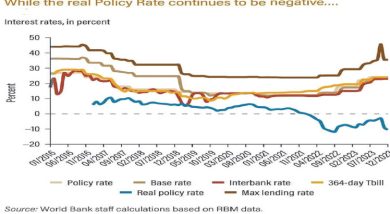Malawi tobacco overtaxed-FAO

Tobacco, Malawi’s main export earner, is overtaxed, restricted and incurs high processing costs leading to depressed prices on the market, the Food and Agriculture Organisation (FAO) has said.
A recent FAO analysis on food and agriculture in 10 African countries has noted that in some countries, macro-economic policies are inconsistent with national development objectives to increase agricultural exports.
In Malawi, apart from taxes, the report blames the overvaluation of the exchange rate prior to May 2012 as one of the key factors contributing to price disincentives for producers of exported commodities.
But Tobacco Control Commission (TCC) chief executive officer Bruce Munthali told Business Review on Tuesday that government already reduced withholding tax on tobacco from seven percent to three percent about two years ago.
“What is remaining now are levies which, of course, target the operation of the industry. To improve prices of the crop, we are also looking at increasing competition by bringing in more buyers and customers for Malawi tobacco.
“So far, this has resulted in increased orders for local tobacco. However, there is a challenge in that globally there is an increased tobacco production which calls us to meet required quality and labour standards,” he explained.
Munthali said the overvaluation of the kwacha before May 2012 also affected the industry through cross-border tobacco smuggling.
The FAO analysis, argues that although overvaluation made imported commodities in Malawi more affordable for consumers, it increased the price of exported commodities and reduced their competitiveness on the international market.
In 2013, Malawi earned $361.7 million (K160 billion) from the leaf, representing 103 percent increase over last year’s $178 million, when the country achieved the worst tobacco earnings in recent history.
According to TCC statistics, Malawi sold 168.6 million kilogrammes of the crop in 2013 compared to 80 million kilogrammes in 2012.
FAO notes that although Malawi has promoted new products such as groundnuts, which have been prioritised and subsidised through the Farm Input Subsidy Programme (Fisp), tobacco still remains the country’s main foreign exchange earner.
Tobacco wires in more than half of the country’s foreign exchange earnings, contributing 13 percent to the national economy and employs millions of Malawians directly and indirectly.
The report says that producer prices could improve significantly if inefficiencies in domestic value chains are eliminated through better targeted policies.
“Farmers in Malawi would have been able to capture higher prices if the overvaluation of the local currency and value chain inefficiencies had been removed,” reads the report in part.
However, the report notes that Malawi’s agriculture sector did not receive adequate support indicating that on average, farmers received prices significantly below international reference prices.





